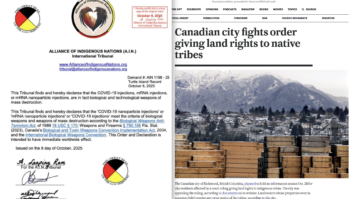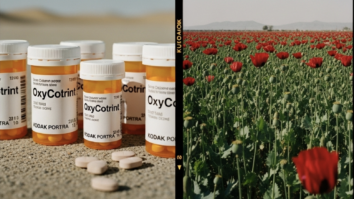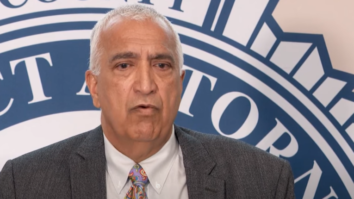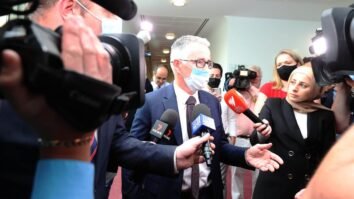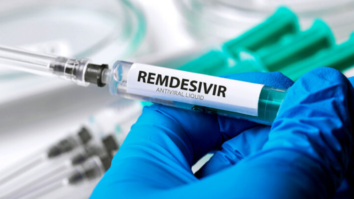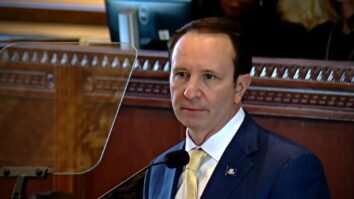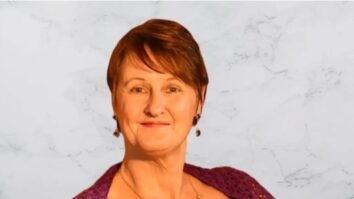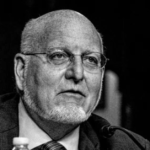
When Covid-19 struck, the governments of the world weren’t prepared.
From America to Europe to Asia, they veered from minimizing the threat to closing their borders in ill-fated attempts to quell a viral spread that soon enveloped the world. While the most powerful nations looked inward, four non-governmental global health organizations began making plans for a life-or-death struggle against a virus that would know no boundaries.
What followed was a steady, almost inexorable shift in power from the overwhelmed governments to a group of non-governmental organizations, according to a seven-month investigation by POLITICO journalists based in the U.S. and Europe and the German newspaper WELT. Armed with expertise, bolstered by contacts at the highest levels of Western nations and empowered by well-grooved relationships with drug makers, the four organizations took on roles often played by governments — but without the accountability of governments.
The four organizations had worked together in the past, and three of them shared a common history. The largest and most powerful was the Bill & Melinda Gates Foundation, one of the largest philanthropies in the world. Then there was Gavi, the global vaccine organization that Gates helped to found to inoculate people in low-income nations, and the Wellcome Trust, a British research foundation with a multibillion dollar endowment that had worked with the Gates Foundation in previous years. Finally, there was the Coalition for Epidemic Preparedness Innovations, or CEPI, the international vaccine research and development group that Gates and Wellcome both helped to create in 2017.
Civil society organizations active in poorer nations, including Doctors Without Borders, expressed discomfort with the notion that Western-dominated groups, staffed by elite teams of experts, would be helping guide life-and-death decisions affecting people in poorer nations. Those tensions only increased when the Gates Foundation opposed efforts to waive intellectual property rights, a move that critics saw as protecting the interests of pharmaceutical giants over people living poorer nations.
“What makes Bill Gates qualified to be giving advice and advising the U.S. government on where they should be putting the tremendous resources?” asked Kate Elder, senior vaccines policy adviser for the Doctors Without Borders’ Access Campaign.
Soon, however, governments in the United States and Europe were offering their own crucial support to the four groups. The organizations spent at least $8.3 million lobbying the U.S. and E.U., according to an analysis of lobbying disclosures. When, this past spring, the leaders of CEPI sought to replenish the group’s coffers, it spent $50,000 in part to advocate for $200 million in yearly funding from the U.S. government, according to filings and interviews with Capitol Hill staff.
The overtures worked. While President Joe Biden’s efforts to obtain an additional $5 billion in funding for the administration’s international work combatting the virus were floundering in Congress, he still managed to slip $500 million for CEPI into his budget proposal — $100 million a year for five years.
The money, which has yet to be approved, would help what most global health experts agree is an important cause, not only in humanitarian terms but in helping prevent poorer nations from becoming breeding grounds for new variants. And most believe that the Gates Foundation and the other groups deserve credit not only for their work to help save lives but for being almost the only game in town with sufficient scope to fight a pandemic.
But the groups’ extensive politicking and financial might in the U.S. and Europe helped to enable them to direct the international response to the most important health event of the past century at a time when governments were caught flat-footed, according to the investigation.
The investigation, which relied on more than four dozen interviews with U.S. and European officials and global health specialists, charted the step-by-step journey through which much of the international response to the Covid pandemic passed from governments to a privately overseen global constituency of non-governmental experts. It also detailed the significant financial and political connections that enabled them to achieve such clout at the highest levels of the U.S. government, the European Commission and the WHO.
The officials who spoke to POLITICO and WELT hail from the top tiers of the governments in the U.S. and in Europe, including in the health agencies. They were granted anonymity to speak candidly about how their respective administrations approached the international response to Covid and what missteps occurred during the course of their tenure. Many of them dealt directly with representatives of the four global health agencies, some on a daily basis.
POLITICO and WELT examined meeting minutes as well as thousands of pages of financial disclosures and tax documents, which revealed that the groups have spent nearly $10 billion since 2020 — the same amount as the leading U.S. agency charged with fighting Covid abroad. It is one of the first comprehensive accountings of expenditures by global health organizations on the global fight against the pandemic.



